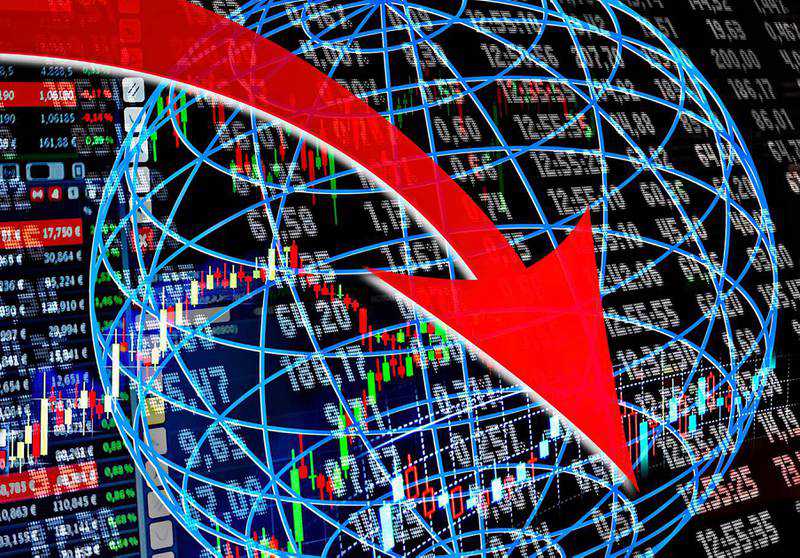Is the global asset bubble about to burst?
12 October, 2021

If you are going to stick your neck out and predict a global stock and property market crash, you might as well go all the way.
That’s what Robert Kiyosaki, author of Rich Dad, Poor Dad, has just done by forecasting “the biggest crash in world history”.
Not only that, he has also put a time limit on it. This month. October 2021. He is warning that Chinese property developer Evergrande is in danger of defaulting on debts totalling $300 billion and this could trigger a global stock and property crash.
Or as he put it in a tweet: “China’s Evergrande Group cannot pay. Valuation of properties fake. Will real estate crash spread to US? Yes.”
Shares will fall, too, apparently. Also gold, silver and Bitcoin. It’s quite a prediction and it’s exactly the type of thing experienced investors expect at this time of year.
The Bank Panic of 1907, the Wall Street Crash of 1929 and Black Monday in 1987 all happened in October. No wonder investors get jittery as Halloween looms.
So, how worried should you be and which asset classes are likely to be hit hardest?
Stocks and shares
Investors should not pay too much heed to the so-called “October effect”, Vijay Valecha, chief investment officer at Century Financial in Dubai, says. “While several of the stock market’s biggest crashes have occurred in October, history also shows the US S&P500 often delivers positive gains during the month, including six of the past 10 years.”
The global economy faces a number of severe challenges right now, including “US-China trade tensions, gathering inflation, tighter monetary policy, supply-side bottlenecks and record high global debt”, says Russ Mould, investment director at AJ Bell.
He believes China will be able to contain the Evergrande crash, but cautions: “If it doesn’t, markets could be in for a bumpy ride.”
The stock market faces plenty of headwinds as the US Federal Reserve considers tapering monetary stimulus this year and hiking interest rates in 2022, Chaddy Kirbaj, vice director at Swissquote Bank, says.
“Tapering may take more time than many expect, but cheap money won’t sustain the current market euphoria for much longer,” he adds.
Inflation is the big worry as the cost of living shoots up amid rising energy prices, supply chain disruptions, red-hot commodities and global food price spikes, Mr Kirbaj says.
“Unless this is transitory, the global economy will fall into stagflation, with stagnant growth and high inflation. This could happen sooner rather than later.”
So, what would all this mean for your portfolio?
Although the crash might not happen, investors should prepare a game plan in case it does, Mr Valecha says. “In a crash, most sectors perform badly. However, others fare relatively well, including utilities, consumer staples and health care.”
If worried, he suggests investors shift some of their portfolios into lower-volatility businesses that are less sensitive to economic cycles and market corrections.
“Whether the economy is shrinking or growing, these companies enjoy steady demand and produce predictable cash flows,” Mr Valecha adds.
Even defensive stocks will fall with everything else in a crash, but they will cushion you from the worst of the sell-off.
A number of specialist exchange-traded funds (ETFs) target defensive stocks, such as the Consumer Staples Select Sector SPDR Fund. For those wanting healthcare exposure, investors may want to consider the iShares US Healthcare Providers ETF.
Mr Valecha also suggests buying the SPDR S&P Oil & Gas Exploration & Production ETF, which should be a beneficiary of the global energy crisis.
“Higher energy costs will hammer industries that consume a lot of power but boost gas, oil and coal producers as winter approaches and demand rises,” he says.
US technology stocks are the biggest winners of the past decade, but could suffer in a crash.
“Stimulus spending has peaked, economic and corporate earnings growth are set to decelerate and the Biden administration has proposed hiking corporate and personal tax rates. None of this will sit well with holders of increasingly pricey technology shares,” Mr Valecha says.
However, this could also present a buying opportunity if there is a crash and Mr Valecha says one option for investors is the Invesco QQQ ETF, which tracks the Nasdaq 100 tech index. “Growth stocks like the tech giants tend to bounce back faster in a recovery.”
Mr Kirbaj also favours defensive utilities, consumer and healthcare stocks with sustainable dividends and is wary of US tech as interest rates rise. “However, tech sectors such as cyber security and artificial intelligence may fare better,” he adds.
Source: www.thenationalnews.com
TAG(s):
